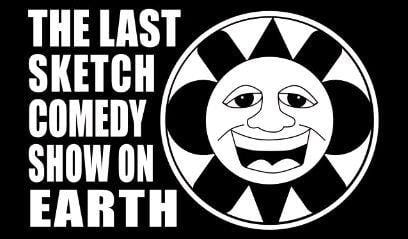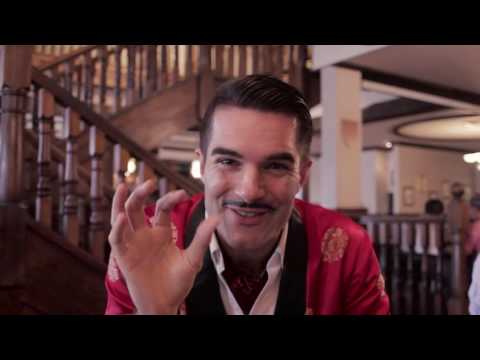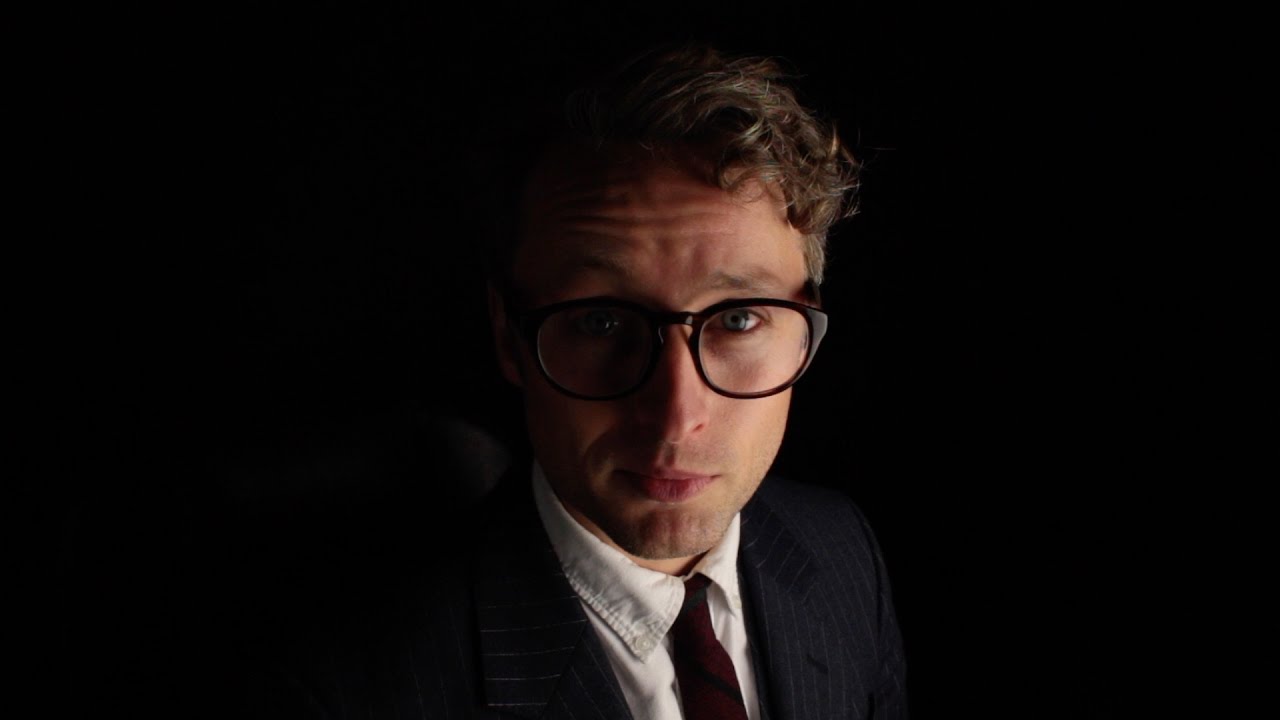Look for magic! How to create authentic comedy experiences
By Lynsey Bonell
I’m from Amelia Comedy, and we’ve started putting on ‘comedy experiences’. I’ll be honest I’m not sold on the phrase ‘comedy experience’ but I’m 100% bought into the concept. They’re shows where the audience doesn’t just sit in their seats going “that was a clever joke”. Instead it’s something they can get involved in, be a part of it and hopefully they respond emotionally to it – an emotional response is the currency of great comedy and it’s the response we’re seeking!
The show we just ran was called ‘Save the date’ and was an improvised comedy experience where we staged an audience member’s dream wedding in the room. There were tears. Actual tears, from the bride, not us at the stress of wedding admin! That’s magic right!
So I thought I’d share how we’re creating ‘comedy experiences’*
1. Blurt it all out and follow what excites you!
When we started our planning we knew the kind of show we wanted, but we didn’t have any ideas of what that would or could be. So we started by listing all the experiences people have in their lives – getting married, having a child, buying a house. We wanted a show people would relate to and want to get involved in. All our ideas went up on a board and some ideas hit in the room way more than others. They were the ideas we’d all jump on immediately – we’d suggest bits we could do for that show, poster ideas, the set dressing etc. They were the ones we, well, cared about and connected to, and weren’t just wordplay or a funny idea. And we figured if we were all that keen it was a good gauge that other people would be. We kept track of the hits with an intricate coding system (a big circle round them). At the end of the night we had 40 ideas, and 6 clear winners!
2. Be organised and collaborate
Sorry, I know it’s dull (we’ll get to that ‘magic’ we hailed about in the article title soon), but it’s so important. Once we’d locked in Save the Date as the first of these shows we set up a google doc to keep track of all the ideas, content, research and show running order. We all live together (cue possible sitcom and terrible theme tune) but we still schedule time to meet and keep a running list of priorities so we can work on the most time sensitive bits first.
At every meeting the google doc goes up on the screen, and we bring along our home work – the jokes and research we’ve all been working on while apart (i.e. in different rooms of the flat). We pitch everything to the room, and then punch up and build on each others work.
To keep things moving when apart (when we’re all working at different tables in the same coffee shop up the street) we use slack and what’s app to share links, research, ideas, promo copy and images and actions so the show can keep on growing. We’ll then regroup again with that doc and add news bits, rejig and improve on earlier ideas.
3. Don’t be scared of work
You need to put in those hours. We’d all been to weddings, but that wasn’t enough. We broke down every element of a marriage and wedding from proposal to get driving off in a ‘just married’ car with cans attached. We say ‘examine your topic like scientists and detectives’. Capture all your thoughts, dig deep, don’t just scratch the surface. We wanted to know about weddings from every perspective as the people marrying, as guests attending, every kind of wedding – modern weddings (pop up food van), traditional weddings (merringue dress), celeb weddings (Britney’s lasted 55 hours!). We watched clips on youtube (don’t search for fatherdaughter wedding dances, oh boy!), we googled wedding gift lists (Game Over toilet paper is available), we read blogs (there are nine tips on how to include your dog in your engagement photos). And we considered buying a lie detector, (how else do you know if they’re telling the truth during the vows) but they cost £100.
4. Be flexible and fast
We knew some ideas would work better on film – so we took them out the show. We decided that at 11am during a meeting one Saturday morning, we wrote those bits up straight away and filmed them that day. We had more wedding content and bits than you’d have at an actual wedding, but that way we got the best bits.
5. Commit to your bits
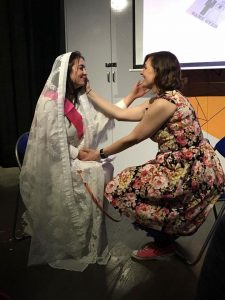 We are all fans of Connor Ratliff a comedian at UCB. He is king of the slow build comedy bits – he’s run for president (and made a 50 page book to go with that campaign) and trained for the Olympics – team Rio! How could we commit to a wedding show (without getting married)? We could all become ordained ministers! This was an idea from the first ideas generation session, and a few clicks later we’re all ordained and can actually marry people. Do all those extra bits! We made an order of service with wedding advice tips, we gave everyone cake, we’ve even made a film of the wedding.
We are all fans of Connor Ratliff a comedian at UCB. He is king of the slow build comedy bits – he’s run for president (and made a 50 page book to go with that campaign) and trained for the Olympics – team Rio! How could we commit to a wedding show (without getting married)? We could all become ordained ministers! This was an idea from the first ideas generation session, and a few clicks later we’re all ordained and can actually marry people. Do all those extra bits! We made an order of service with wedding advice tips, we gave everyone cake, we’ve even made a film of the wedding.
6. Play to your strengths to create the magic
We all trained at UCB – the Upright Citizen’s Brigade in New York and have a strong improv background so we mixed a lot of our improv skills with empathetically listening to the audience and trying to actually honour the things they wanted. Mean comedy is fine but we genuinely tried to throw someone an amazing party that everyone enjoyed. We chatted to the bride to find out what kind of partner she wanted, if she had thoughts on a dream wedding. We had an outfit for her to wear, we had an elaborate proposal, and during the vows our audience member started to cry “I’m getting married”. Now that’s magic right? Perhaps only slightly bettered with an alarmist cry of “”Wait wait … I want to get a photo” as the two brides cut the cake. Just like a real wedding, our audience didn’t want to miss out on that key photo opp!
7. Make it better
Our wedding show went pretty well, we didn’t have a guest book but people said: “Thanks for having us. Was such a laugh” and “Loved the Wedding show…a riot, great fun!” Next time it’ll be even better, there was definitely magic, but we know there can be more. And so we’ll be working on how to bring that in on the 7 July – when we improvise another dream wedding – someone has already been in touch interested in how to take part. And a friend I’ve not seen in ages has contacted me to find out when we’re doing the show again so she can come along “it sounds so great!”
*seriously any new name ideas welcome
You can get tickets for 7th July show here
Check out Amelia comedy’s improv experience shows on their Facebook page

 I know I am preaching to the converted here on The Comedy Crowd but the effort of making a trailer is well worth it. With so much competition you have to find a way to find your crowd and stand out, a trailer – less than 90 secs- will make a difference. Even 15 secs of you smiling and talking to the camera with one joke will help. In 2016 there were 2,475,143 tickets sold through the box office, that does not include the free fringe and non-ticketed shows. The audience want to find a reason to come see your show.
I know I am preaching to the converted here on The Comedy Crowd but the effort of making a trailer is well worth it. With so much competition you have to find a way to find your crowd and stand out, a trailer – less than 90 secs- will make a difference. Even 15 secs of you smiling and talking to the camera with one joke will help. In 2016 there were 2,475,143 tickets sold through the box office, that does not include the free fringe and non-ticketed shows. The audience want to find a reason to come see your show. I am an actress and cabaret artiste who has done shows from Edinburgh, Montreal, Prague and Brighton fringes and London’s West End. As a straight actress I have been in many films, some such as the multi award-winning Sunday Dinner With The Morgans, were screened in over 30 festivals worldwide and reached the semi-final nominations round for an Academy Award in 2015. I am the yummy mummy in The Vamps ‘Shall We Dance” hit video.
I am an actress and cabaret artiste who has done shows from Edinburgh, Montreal, Prague and Brighton fringes and London’s West End. As a straight actress I have been in many films, some such as the multi award-winning Sunday Dinner With The Morgans, were screened in over 30 festivals worldwide and reached the semi-final nominations round for an Academy Award in 2015. I am the yummy mummy in The Vamps ‘Shall We Dance” hit video.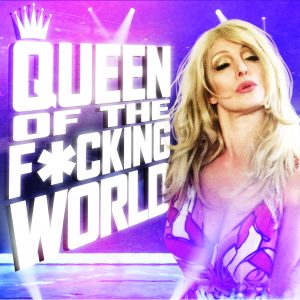 My new version THE SINGING PSYCHIC GAME SHOW is monthly at The Phoenix Artist Club in Soho, London. Plus I performed at Vault Festival in Feb 2017.
My new version THE SINGING PSYCHIC GAME SHOW is monthly at The Phoenix Artist Club in Soho, London. Plus I performed at Vault Festival in Feb 2017.